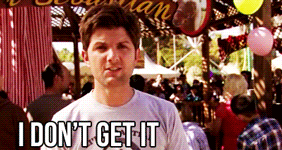Love the Lord with all your heart, and with all your soul,
and with all your MIND”--Matt 22:37
In a few Sundays we will be celebrating the Solemnity of the Most Holy Trinity. The Trinity, which is the central dogma of Christianity, is most easily expressed as: 3 Divine Persons in One God.
“This is a hard saying; who can listen to it?”
It is a indeed a very difficult dogma to comprehend, and even more difficult, in my opinion, to articulate, especially to a non-Christian. Whenever we try to express the teaching of the Trinity to a non-Christian, puzzled looks abound--"You are telling me that even though Christians worship One God, you preach that Jesus is God, and the Father is God and the Holy Spirit is God? Doesn't that make...3 gods? That seems so obvious to me!"
It is, indeed, a "hard saying", and not a few religious groups have broken off from Christianity because of their inability to accept this "hard saying". Instead of embracing the Trinity, groups such as the Unitarians, Oneness Pentecostals, Jehovah's Witnesses, Church of the Latter Day Saints (Mormons) have created their own understandings of the Godhead, and presented new more palatable teachings on the divine nature of God.
That is, they found a teaching of the Church to be a "hard saying" and rather than trying to understand this teaching, they decided to leave the Church and create an innovation, a way of more easily embracing what sounds to be preposterous.
“This is a hard saying; who can listen to it?”
Where else do we find Jesus' disciples leaving Him because of a "hard saying"?
In John 6.
The Eucharistic Discourse.
Jesus commands His disciples to eat His flesh and drink His blood. That's preposterous!
And the Scriptures tell us they responded with: "When many of his disciples heard it, they said, “This is a hard saying; who can listen to it?”--John 6:60
And many left Him because of this.
Who can doubt that this is a "hard saying" to embrace. And now most Christian denominations reject the Catholic teaching on the Real Presence of Christ in the Eucharist. It's much easier to believe that Jesus was speaking only symbolically and we're not really commanded to "eat His flesh and drink His blood".
“This is a hard saying; who can listen to it?”
And many have left His Body, the Catholic Church, over other "hard sayings": the Church declares that you can lose your salvation, through mortally wounding your relationship with God through some very serious sins. Many folks find this a "hard saying"--"I want to know for sure that I'm going to heaven when I accept Jesus as my Lord and Savior", so instead some folks created a very, very likable and easy to swallow doctrine of "Eternal Security", or "Once Saved Always Saved". As long as I've been "saved", there is nothing I can do that will jeopardize my reward in heaven. That's a lot nicer than the thought that I may not go to heaven as a Christian.
“This is a hard saying; who can listen to it?”
The Church declares that it's a moral obligation to attend Mass every Sunday.
“This is a hard saying; who can listen to it?”
Doesn't it seem harsh to think that God demands that from us?
So some churches have removed the obligation to worship on Sundays. Easy. Likable. Attractive.
The Church declares that we must take up our cross and deny ourselves.
“This is a hard saying; who can listen to it?”
So some folks create the "Health and Wealth" gospel. "God wants us to be wealthy. God wants us to do what wewant and that will make God happy." Easy. Likable.
Some folks like to joke that the Lutheran or Episcopalian churches are "Catholic Lite"--that is, they've taken all the "hard to swallow" doctrines of Catholicism and thrown them into the disposal, keeping the sweet, likable parts of being a Christian.
I just don't think that's a good paradigm for worship.
Again, as Pastor Tim Keller says:
Rather than leaving a church when you disagree with its teachings to create a new church that's more palatable, attractive, easy-to-swallow, shouldn't we find the Church that Christ established and then conform our views to Christ's?
Incidentally, the concept of conforming our views to fit what has been declared and revealed by Christ, rather than what we'd like, is NOT a model for "blind obedience". Rather, it is based on the model for what, say, Calculus students do when they get a different answer than the Professor--they re-work and re-formulate their computations, grappling and struggling, knowing that they are wrong and the Professor is right--until they get the same answer that the Professor offered.
Now, with all of that said, some comedian may counter with, "Oh? You're saying that I shouldn't reject something on the grounds that it's a preposterous concept? Ok. Then I guess I should embrace the idea that Jesus is an alien. You may say that it sounds preposterous, but, remember, you also said that just because something is preposterous I can't reject it."
Well...not exactly. We don't accept or reject a concept simply because it's preposterous or absurd. We accept most things based on...accepting the authority of the one who proposes the concept. That is, we accept the Trinity based on the fact that we accept the authority of the Church. And then we digest and study and review and reformulate, until we can intellectually accept the Truth.
Fides quaarens intellectum. Faith seeking understanding.
And when someone proposes that, say, Jesus was really an alien, we look at the source--someone named
"Starbright Sparkles". Does Ms Sparkles have any authority to speak on this? Does the evidence lead us to believe this is true and reliable?
Then, clearly, we can reject preposterous and absurd claims.


